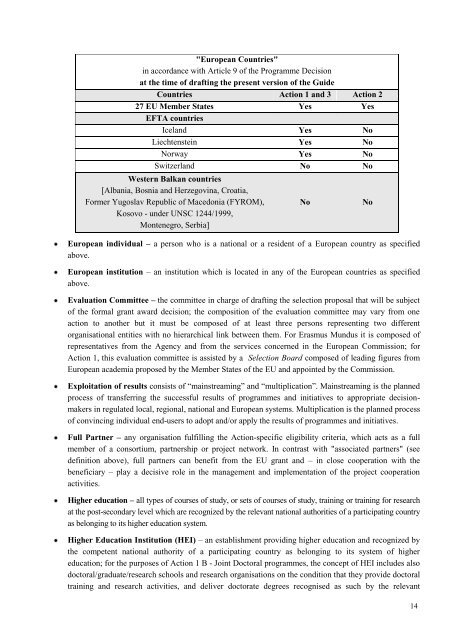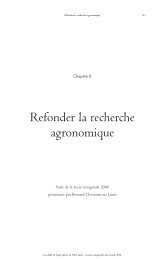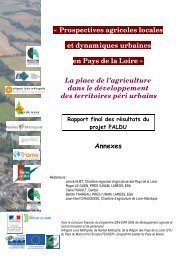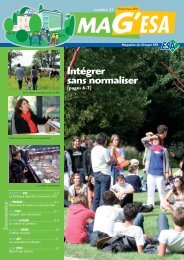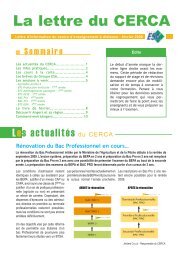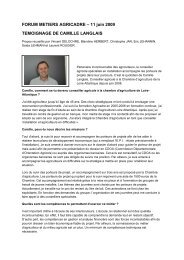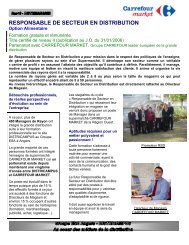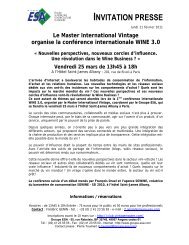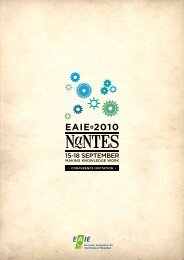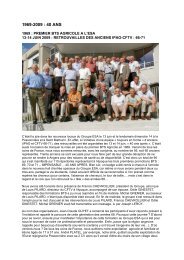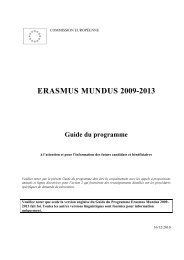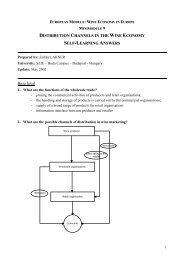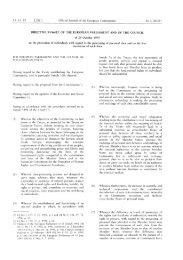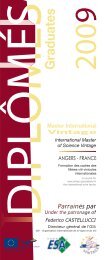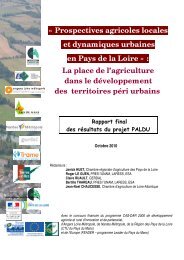ERASMUS Mundus Program Guide - EACEA - Europa
ERASMUS Mundus Program Guide - EACEA - Europa
ERASMUS Mundus Program Guide - EACEA - Europa
You also want an ePaper? Increase the reach of your titles
YUMPU automatically turns print PDFs into web optimized ePapers that Google loves.
"European Countries"<br />
in accordance with Article 9 of the <strong>Program</strong>me Decision<br />
at the time of drafting the present version of the <strong>Guide</strong><br />
Countries Action 1 and 3 Action 2<br />
27 EU Member States Yes Yes<br />
EFTA countries<br />
Iceland Yes No<br />
Liechtenstein Yes No<br />
Norway Yes No<br />
Switzerland No No<br />
Western Balkan countries<br />
[Albania, Bosnia and Herzegovina, Croatia,<br />
Former Yugoslav Republic of Macedonia (FYROM),<br />
Kosovo - under UNSC 1244/1999,<br />
Montenegro, Serbia]<br />
European individual – a person who is a national or a resident of a European country as specified<br />
above.<br />
European institution – an institution which is located in any of the European countries as specified<br />
above.<br />
Evaluation Committee – the committee in charge of drafting the selection proposal that will be subject<br />
of the formal grant award decision; the composition of the evaluation committee may vary from one<br />
action to another but it must be composed of at least three persons representing two different<br />
organisational entities with no hierarchical link between them. For Erasmus <strong>Mundus</strong> it is composed of<br />
representatives from the Agency and from the services concerned in the European Commission; for<br />
Action 1, this evaluation committee is assisted by a Selection Board composed of leading figures from<br />
European academia proposed by the Member States of the EU and appointed by the Commission.<br />
Exploitation of results consists of “mainstreaming” and “multiplication”. Mainstreaming is the planned<br />
process of transferring the successful results of programmes and initiatives to appropriate decisionmakers<br />
in regulated local, regional, national and European systems. Multiplication is the planned process<br />
of convincing individual end-users to adopt and/or apply the results of programmes and initiatives.<br />
Full Partner – any organisation fulfilling the Action-specific eligibility criteria, which acts as a full<br />
member of a consortium, partnership or project network. In contrast with "associated partners" (see<br />
definition above), full partners can benefit from the EU grant and – in close cooperation with the<br />
beneficiary – play a decisive role in the management and implementation of the project cooperation<br />
activities.<br />
Higher education – all types of courses of study, or sets of courses of study, training or training for research<br />
at the post-secondary level which are recognized by the relevant national authorities of a participating country<br />
as belonging to its higher education system.<br />
Higher Education Institution (HEI) – an establishment providing higher education and recognized by<br />
the competent national authority of a participating country as belonging to its system of higher<br />
education; for the purposes of Action 1 B - Joint Doctoral programmes, the concept of HEI includes also<br />
doctoral/graduate/research schools and research organisations on the condition that they provide doctoral<br />
training and research activities, and deliver doctorate degrees recognised as such by the relevant<br />
No<br />
No<br />
14


